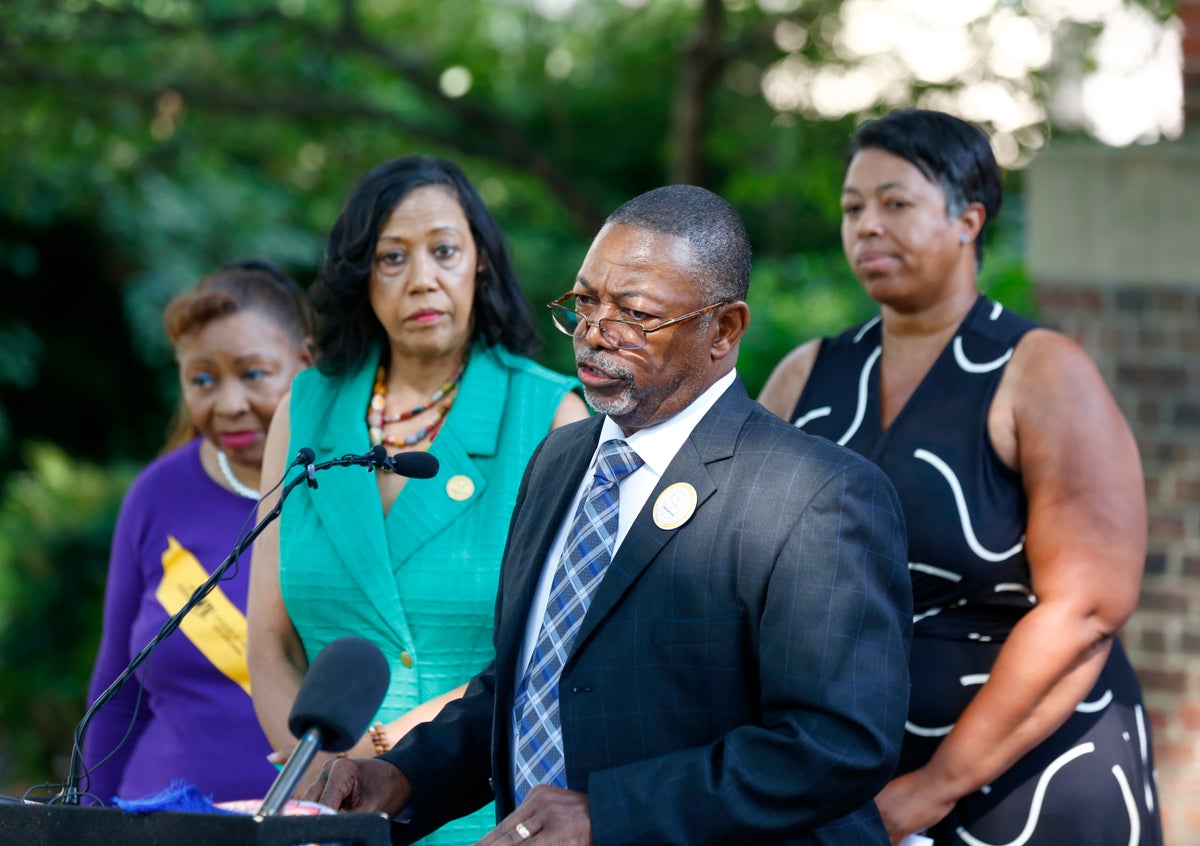
The Virginia NAACP said Monday that Gov. Glenn Youngkin's administration lacks clear standards for restoring voting rights to convicted felons who served their sentences, leaving many frustrated and unable to vote in Tuesday’s nationally watched state elections.
The group's assertion followed the administration's release Friday of more records related to how the state makes its decisions. The documents include emails between state officials and people whose requests were denied.
“The Governor has deemed you ineligible for rights restoration at this time,” the emails state, while telling applicants they can reapply in a year.
Applicants received no explanation or justification for their denials, while the state has provided no stated standards for who is eligible or ineligible for restored voting rights, the NAACP said in a statement Monday.
In a late August email released by the state, someone who was clearly upset by the rejection pressed for more information.
“Is there a reason why?” wrote the person, whose name was redacted. “After all I feel I deserve an explanation because I’m not a violent felon and I am trying to do something with my life. I wanted to start taking classes towards law enforcement to be on the right side of the law instead of the wrong. This is very discouraging.”
In Virginia, a felony conviction automatically results in the loss of certain rights such as voting, serving on a jury, running for office or carrying a firearm. The governor has the sole discretion to restore them — with the exception of firearms rights, which only a court can do.
Youngkin’s handling of the process has been under scrutiny for months after his administration confirmed it had shifted away from an at least partly automatic restoration system used by his predecessors. At least three lawsuits have been filed challenging what critics call an opaque process that could result in discrimination.
Youngkin spokesperson Macaulay Porter said in a statement Monday that the administration has been “engaged in a multi-month process with the NAACP with multiple meetings and discussions” about the restoration of voting rights.
“In a good faith effort to work with the NAACP, our office underwent an extensive process to fulfill their requests and they just continue to employ political tactics,” Porter said.
Porter said Youngkin “firmly believes in the importance of second chances for Virginians who have made mistakes but are working to move forward as active members of our citizenry.”
She said the administration has produced approximately 680 pages of records, some of which the governor was not required to produce under public records laws.
The documents released Friday include requests by the Youngkin administration for information about applicants from various state agencies, including Virginia's Department of Elections.
The NAACP said the request was "puzzling" and suggested information being gathered was “likely to include voting history.” The group noted that Youngkin has refused ”to publicly state how he uses this information to determine whether to restore a citizen’s voting rights."
In July, the NAACP said documents it obtained through public records requests “reveal a lack of clear standards and timelines” that creates a confusing system “rife with opportunity for discriminatory impact on Black Virginians and other Virginians of color.”
Former Secretary of the Commonwealth Kay Coles James, whose office oversees restorations, strongly denied those allegations in a letter she sent to the NAACP in July. James wrote that there is no reference in the application process to “race, religion, or ethnicity.”
“Governor Youngkin and I both guarantee that these factors play absolutely no role in the process or the serious decisions that we make on behalf of returning citizens,” James wrote.
The NAACP warned then that the restoration process is operating at an “increasingly slow pace,” potentially blocking thousands of people from participating in upcoming elections.
In a letter accompanying the documents released on Friday, the governor's office said that more than 1,000 applications submitted between January 2022 and October 2023 have not yet been processed because they are incomplete or more information has been requested.
The administration said that it has processed all applications that contain complete information through late September. About 40 applications are still pending while the administration waits for a response from a state agency, the governor's office said.
James said in her July letter that Youngkin is “less likely to quickly restore the voting rights of anyone who used a firearm in the commission of a crime.” She also wrote that Youngkin will also “generally speaking, but not always” work to restore the voting rights of those who committed nonviolent crimes.
The NAACP sued the Youngkin administration last month for the release of more records related to the restoration of voting rights. The NAACP said the trove of documents released Friday “came in the final hours before a scheduled court hearing” and was “an abrupt reversal after the governor’s repeated refusal to comply with the Virginia Freedom of Information Act.”
—-
Finley reported from Norfolk, Virginia.







